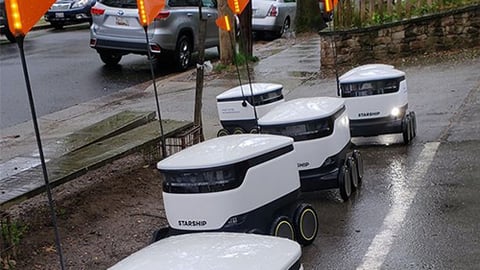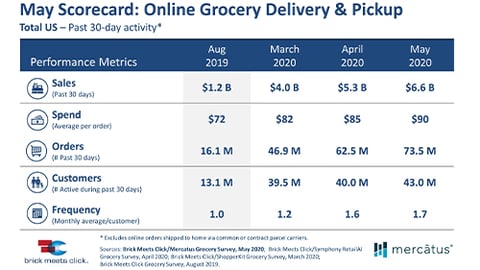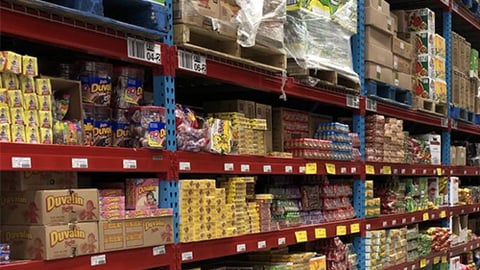Farmstead Relocating to Larger Facility
Online grocer Farmstead has signed a lease for a new, much larger microhub space in Burlingame, California. The space is six times bigger than company’s previous microhub on Harrison Street in San Francisco. Farmstead is currently transitioning operations to the new facility, which it said will give it the capacity to deliver grocers to tens of thousands of Bay Area households weekly.
Thanks to San Francisco’s shelter-in-place order, Farmstead’s order volume increased by 500%, and its average basket size doubled, meaning that its staff was picking, packing and delivering 10 times the volume it was before. While the order was in place, there was a critical shortage of grocery delivery capacity in the Bay Area, particularly from traditional grocers, who had trouble scaling their service because of existing stores’ structural constraints. Farmstead, meanwhile, relied on a microhub that was stocked daily in accordance with predictive-demand models, and so was capable of serving a 50-mile radius.
“Our new facility, coupled with our continued hiring spree, will help us immediately quadruple our delivery capacity, and grow it by 10 times in the coming months,” noted Farmstead CEO and co-founder Pradeep Elankumaran.
Added Elankumaran: “Grocery delivery has now passed the tipping point. The recent shelter-in-place [order] accelerated adoption of grocery delivery by three to four years. In the Bay Area, we went from 5% adoption to 30%-40% adoption in a matter of weeks, and are gaining confidence that most new customers will continue weekly service through and after the COVID-19 pandemic. Farmstead’s model enabled us to handle the increase in volume from just one microhub. Traditional grocers struggled with capacity and per-order economics, and are already pulling back on delivery and offering order pickup instead.”
According to the executive, Farmstead’s microhub model and proprietary software have permitted the company to deliver groceries at prices lower than those local stores, with no delivery fees and with net-profit per order targets that are four to five times higher than those of traditional grocers.






